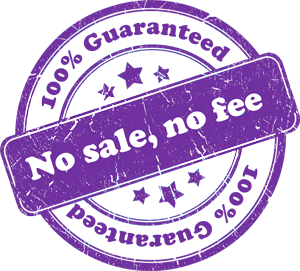Selling with Vacant Possession
- If the contract specifies vacant possession, the property must be empty on the day of completion (usually by 2 pm).
- Failure to give vacant possession on completion would be a breach of contract with 10 working days to remedy the breach.
- After 10 working days, the buyer could rescind the contract, have their 10% deposit returned and apply to recover their legal costs.
- Vacant possession means the property is empty of anyone living in the property and all their possessions. Some sellers leave possessions in the property.
- A landlord selling a rental property should never exchange until they have vacant possession or they agree to sell with a sitting tenant.
What is vacant possession?
The term 'vacant possession' means that a residential property you're buying is empty on completion day.
This means the sellers, and/or the seller's tenants, have moved out and taken all their belongings with them, leaving only those items agreed with the buyer. However, this is not always the case.
The standard conditions of sale in England and Wales state that any property sold is sold either with or without vacant possession.
If it's sold without vacant possession, any active tenancy agreements and documentation relating to the property must be included in the contract for sale. If you were to buy a property, you'd need to know who lived in it and under what terms.
Buy-to-Let landlords (property investors) who already have a portfolio of properties, are more likely to take on a sitting tenant for continuity of property income.
However, the vendor must provide the tenancy agreements and other information that may be required, and then respond to any enquiries about the tenants or tenancy agreement.
Problems can occur when a tenant stays in the property or the seller leaves belongings in it on completion day. The first situation may arise if the seller didn't want to make the tenant move out before exchanging contracts in case the sale fell through and they lost rental income.
Freehold with vacant possession
A freehold with vacant possession means the buyer owns the property outright, including the land it sits on, for an indefinite period and can take ownership of this freehold title and property without any existing tenants.
A freehold owner has complete control over the property, including the right to sell, rent, or modify it as they see fit.
Without tenants, they are free from the responsibilities and potential disputes associated with landlord-tenant relationships.
- 1
What legal obligation does vacant possession place on the seller?
When buying a property with existing tenants, sellers are obligated to provide detailed information about the tenancies, including copies of the tenancy agreements.
A buyer has the right to inquire about the specifics of the tenancies, and these details will be outlined in the contract for sale.
If you're selling a property 'with vacant possession':
- You or your tenants can remain there up until the day of completion.
- After the exchange of contracts you are contractually obliged to leave the property or remove your tenants, on the day of completion by the time specified in the contract which is normally 2 pm.
- Unless you've agreed in advance with your buyer about leaving certain items, you must ensure that all your belongings are removed from the property.
- Any items that remain following completion, such as white goods, are usually set out in the Memorandum of Sale, Fittings and Contents form, or via documented private agreement.
- If you – or your tenants – leave behind furniture, rubbish or any items that will prevent the buyer from immediately using the property, you may breach the terms of your contract and the buyer could make a legal claim against you. At the very least, completion might be delayed.
- Fixed, competitive legal fees with no hidden costs.
- Expert conveyancing solicitors with proven local knowledge.
- No Sale, No Fee protection for your transaction. Terms apply.
- On 99% of mortgage lender panels.
- Fast completions.
- We can solve any property challenge.
- 2
When should you make your tenants leave if selling with vacant possession?
You are strongly advised to do this before exchanging contracts; this will mean possibly losing rental income if the property stays empty for a period.
However, if you exchange contracts with tenants in the dwelling and they're still there at the completion date, you might find that you'll have to pay out for costs higher than the rental income loss.
As a buyer, you might insist that the property is vacant before the exchange, although your seller might not agree.
Failing that, you could request your conveyancer to amend your contract to state that vacant possession is a fundamental term after exchange and your solicitor can check both the tenancy agreement and the notice served upon the tenants.
- 3
How likely is it that your seller will only move out on completion day?
When buying from an existing resident, sellers often stay until completion (usually 1-2 weeks after contract exchange), as their new home depends on the property sale.
If they're purchasing as part of a chain, they might rely on the completion monies to pay for their next property, which means they might have to move out on completion day.
Naturally, if you're going to be living in the property you'll know immediately if they've moved out as planned.
This is why if you're not intending to live in the property, you should still check on the day after the agreed completion time to see if they've vacated properly.

Fixed quote for our legal costs plus a budget-friendly breakdown of third-party disbursements.

Your sale or purchase is protected by our no sale, no fee guarantee.

Our panel solicitors are pre-approved to work with 99% of mortgage lenders in England & Wales.

Panel solicitors accredited by the Conveyancing Quality Scheme; regulated by the SRA.
Failure to give vacant possession on completion date
When a seller fails to provide vacant possession of a property on the agreed-upon completion date, it carries legal implications and can lead to complications for both the buyer and seller.
The buyer's perspective
- Delayed occupancy: The buyer is unable to move into the property as planned, causing inconvenience and potential additional living expenses.
- Financial losses: The buyer may incur costs related to extended accommodation arrangements, storage fees, or mortgage interest payments.
- Contractual remedies: The buyer may be entitled to seek remedies under the contract of sale, such as specific performance (forcing the seller to complete the sale) or damages to compensate for losses.
The seller's perspective
- Breach of contract The seller is in breach of the contract of sale, which could result in legal action and financial losses. In certain circumstances, the buyer could get an injunction to prevent the seller from selling the property to another buyer.
- Financial penalties: The seller may be liable to pay compensation to the buyer for any losses incurred due to the delay, which could include legal fees or accommodation expenses.
- Sale delay The seller may face difficulties in reselling the property if the buyer exercises their right to terminate the contract. In some cases, the buyer could even recover their deposit and other payments made before the sale fell through.
Tenant-occupied properties
If there's a tenant or occupier who isn't the seller, they might refuse to move out. Inform your Conveyancer before exchanging contracts if this is a concern.
To minimise risks, insist on a vacant property before exchange if possible. If not, your Conveyancer can include a clause allowing you to inspect on completion day to verify it's vacant.
Buying a property? Worried about vacant possession?
If you're not expecting a tenant in situ, our experienced property solicitors can work to ensure there are no nasty surprises on completion day, whether it's a tenant that should have moved out or belongings and debris left in the property which weren't agreed in your sale.
Andrew started his career in 2000 working within conveyancing solicitor firms and grew hands-on knowledge of a wide variety of conveyancing challenges and solutions. After helping in excess of 50,000 clients in his career, he uses all this experience within his article writing for SAM, mainstream media and his self published book How to Buy a House Without Killing Anyone.
Caragh is an excellent writer and copy editor of books, news articles and editorials. She has written extensively for SAM for a variety of conveyancing, survey, property law and mortgage-related articles.










